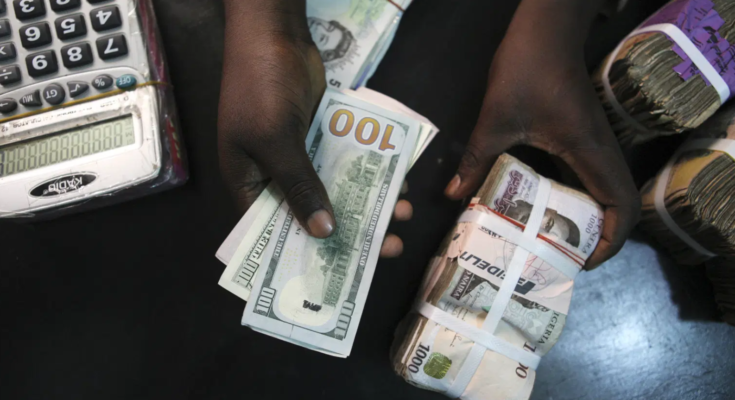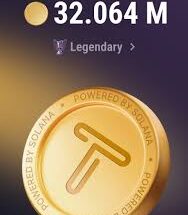A Comprehensive Guide on How to Start a Bureau De Change Business in Nigeria
Starting a Bureau De Change (BDC) business in Nigeria can be a lucrative venture due to the country’s active foreign exchange market and international trade activities. However, entering this industry requires careful planning, adherence to regulations, and a deep understanding of currency exchange dynamics. This article provides a step-by-step guide on how to start a Bureau De Change business in Nigeria.
Bureau De Change Business: Overview, Risks, and Global Impact

A Bureau De Change (BDC) is a financial institution or business entity that provides currency exchange services to customers, allowing them to buy and sell different currencies. BDCs play a crucial role in facilitating international travel, trade, and financial transactions by offering a convenient and accessible way to obtain foreign currencies. In this article, we’ll delve into the details of the Bureau De Change business, discuss associated risks, and explore its global impact.
⇒Join us on Telegram for more Sure and Accurate football-winning tips every day...click here
Key Aspects of Bureau De Change Business
- Currency Exchange: BDCs specialize in converting one currency into another, catering to travelers, businesses engaged in international trade, expatriates, and individuals who need foreign currencies for various purposes.
- Service Range: BDCs provide services beyond currency exchange, including money transfer, remittances, and payment services, making them vital players in the global financial ecosystem.
- Licensing and Regulation: Operating a BDC requires obtaining licenses and adhering to regulatory guidelines set by relevant authorities, such as central banks or financial regulatory bodies.
- Profit Model: BDCs make a profit by offering exchange rates that slightly differ from interbank rates. The difference, known as the “spread,” constitutes their revenue.
Risks Associated with Bureau De Change Business
- Exchange Rate Risk: BDCs are exposed to fluctuations in exchange rates, which can impact their profit margins if not managed effectively.
- Operational Risk: Ensuring compliance with regulations, preventing fraud, and maintaining accurate record-keeping are crucial to managing operational risks.
- Liquidity Risk: BDCs need to maintain sufficient cash reserves to fulfill customer transactions, especially during periods of high demand.
- Market Risk: BDCs need to stay informed about global economic and political events that can influence exchange rates and customer behavior.
Global Impact of Bureau De Change Business
- Facilitating Trade: BDCs play a pivotal role in supporting international trade by providing businesses with access to foreign currencies needed for importing and exporting goods and services.
- Tourism and Travel: BDCs enable tourists to acquire local currencies for their travel needs, contributing to the growth of the tourism industry.
- Remittances: BDCs facilitate the movement of remittances from foreign workers back to their home countries, supporting families and contributing to economic stability.
- Foreign Investment: BDCs assist foreign investors in acquiring local currencies for investment purposes, promoting cross-border investments.
- Economic Stability: A well-regulated BDC sector can contribute to economic stability by efficiently managing currency demand and supply.
- Financial Inclusion: BDCs provide access to foreign currency for individuals who may not have access to traditional banking services, promoting financial inclusion.
How To Start Bureau De Change Business In Nigeria
The Bureau De Change business is a vital component of the global financial landscape, playing a significant role in international trade, travel, and economic stability. While the industry offers opportunities for profit and economic growth, it also comes with risks that need to be managed diligently. The ability to efficiently convert currencies and provide essential financial services makes BDCs essential for individuals, businesses, and economies worldwide. As the financial world continues to evolve, BDCs remain at the forefront of enabling seamless cross-border transactions and contributing to global economic interconnectedness.
Step 1: Research and Planning
- Market Research: Study the foreign exchange market in Nigeria, including demand and competition. Identify potential locations where your BDC can attract customers.
- Business Plan: Create a detailed business plan outlining your goals, target market, pricing strategy, operational processes, and financial projections.
Step 2: Legal and Regulatory Requirements
- Company Registration: Register your business with the Corporate Affairs Commission (CAC) as a limited liability company.
- BDC License: Obtain a BDC license from the Central Bank of Nigeria (CBN). This involves meeting capital requirements, fulfilling documentation, and demonstrating your knowledge of foreign exchange operations.
- Anti-Money Laundering (AML) Compliance: Comply with AML regulations by implementing Know Your Customer (KYC) procedures, record-keeping, and reporting suspicious transactions.
Step 3: Financial Considerations
- Capitalization: Meet the minimum capital requirement specified by the CBN for operating a BDC.
- Bank Account: Open a dedicated bank account for your BDC business to facilitate foreign exchange transactions.
Step 4: Location and Infrastructure
- Physical Location: Choose a strategic location for your BDC, preferably in areas with high foot traffic and accessibility.
- Technology: Set up the necessary technology, including computers, internet connectivity, and currency exchange software.
Step 5: Staffing and Training
- Hire Staff: Employ experienced and knowledgeable staff who understand foreign exchange regulations and customer service.
- Training: Provide comprehensive training to your staff on foreign exchange operations, customer interaction, and compliance procedures.
Step 6: Marketing and Branding
- Branding: Develop a strong brand identity, including a name, logo, and signage that reflects professionalism and trustworthiness.
- Marketing Strategy: Create a marketing plan that includes both offline and online strategies to reach your target audience.
Step 7: Operations and Compliance
- Foreign Exchange Transactions: Execute foreign exchange transactions according to CBN guidelines and rates.
- Record-Keeping: Maintain accurate records of all transactions, customer information, and financial statements.
Step 8: Customer Service
- Excellent Service: Prioritize exceptional customer service to build trust and loyalty among your clientele.
- Transparency: Maintain transparency in pricing, exchange rates, and fees.
Step 9: Risk Management
- Market Risk: Stay informed about currency fluctuations and geopolitical events that can impact exchange rates.
- Security: Implement security measures to safeguard cash and customer data.
Step 10: Continuous Improvement
- Stay Updated: Keep up with regulatory changes, market trends, and technological advancements in the foreign exchange industry.
- Feedback: Gather feedback from customers to identify areas for improvement and enhancement.
Conclusion
Starting a Bureau De Change business in Nigeria requires meticulous planning, adherence to regulations, and a commitment to providing quality services. With thorough research, proper licensing, and a customer-focused approach, you can navigate the complexities of the foreign exchange market and establish a successful BDC that contributes to Nigeria’s international trade landscape.




